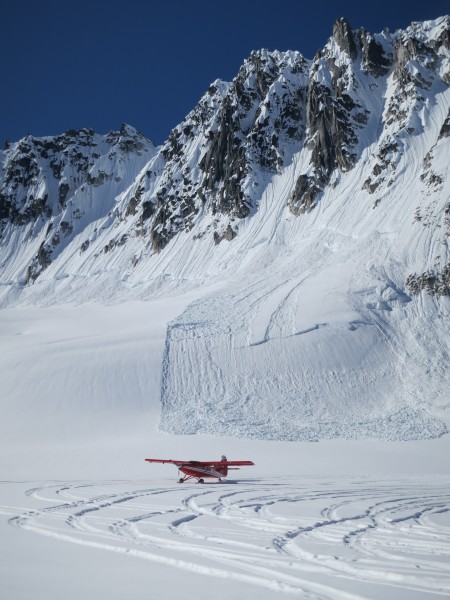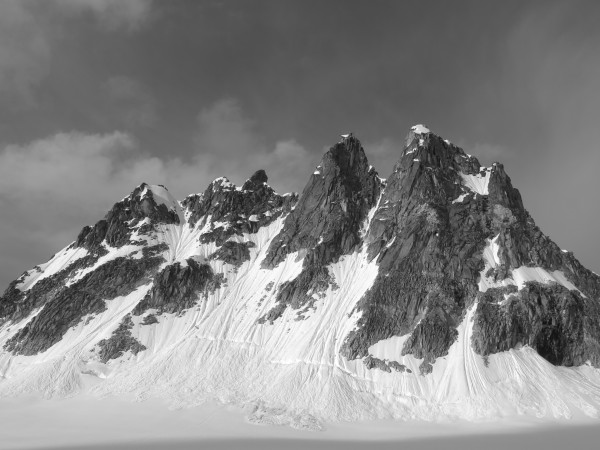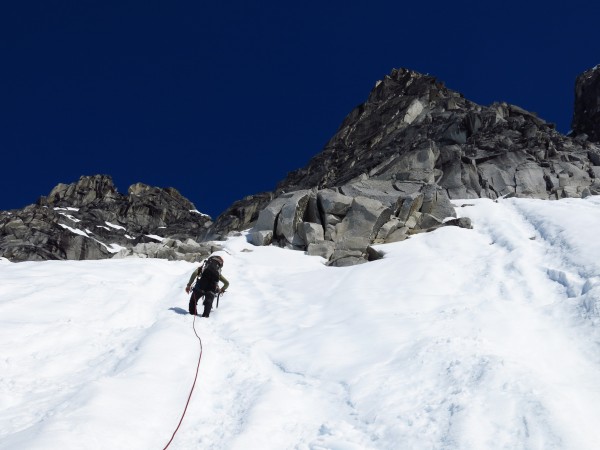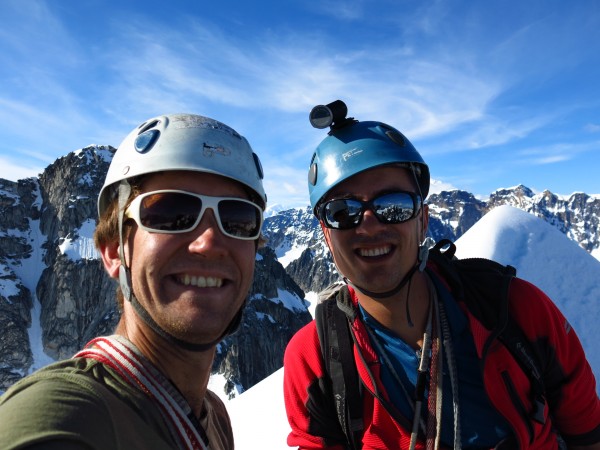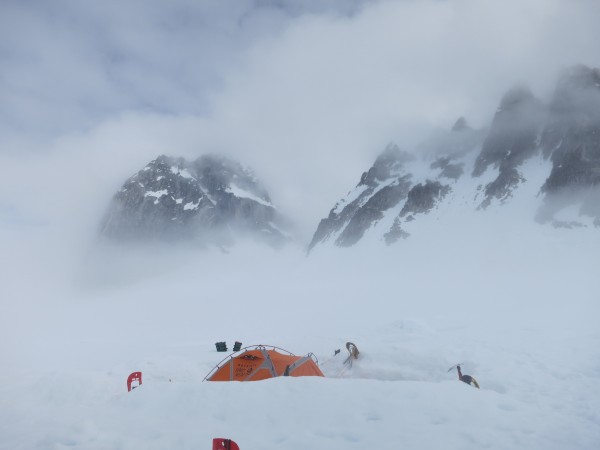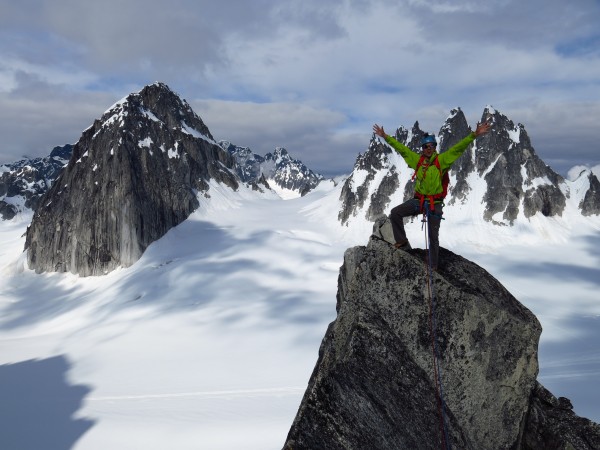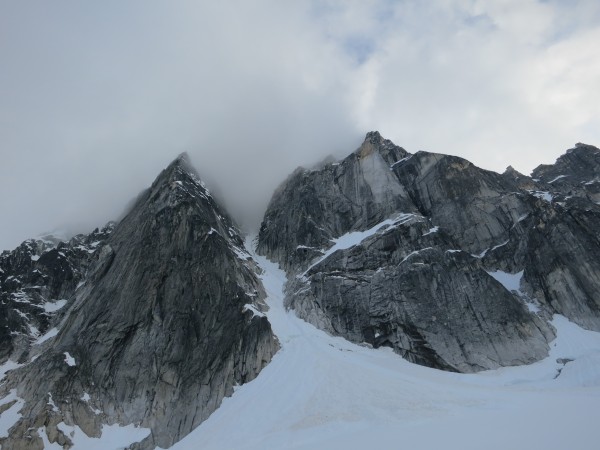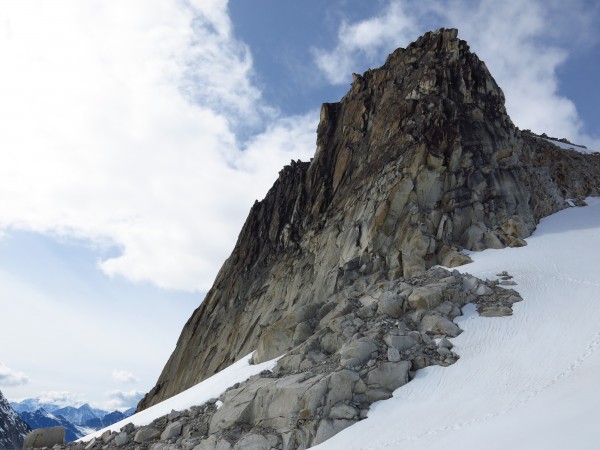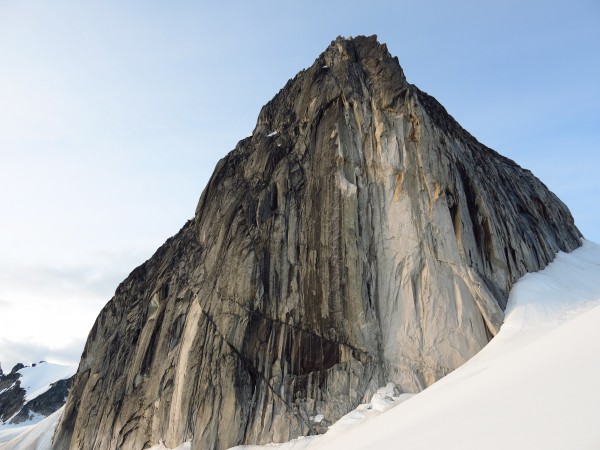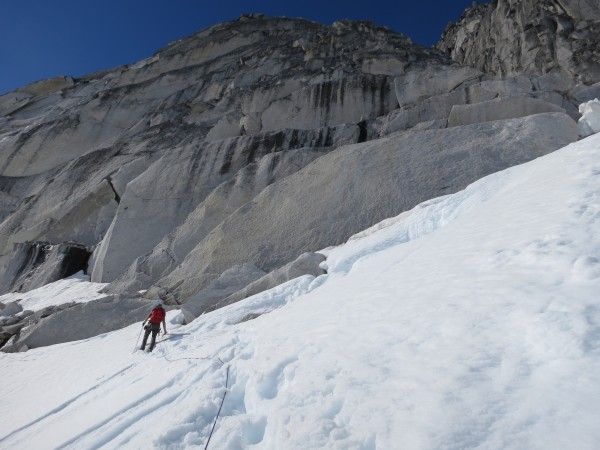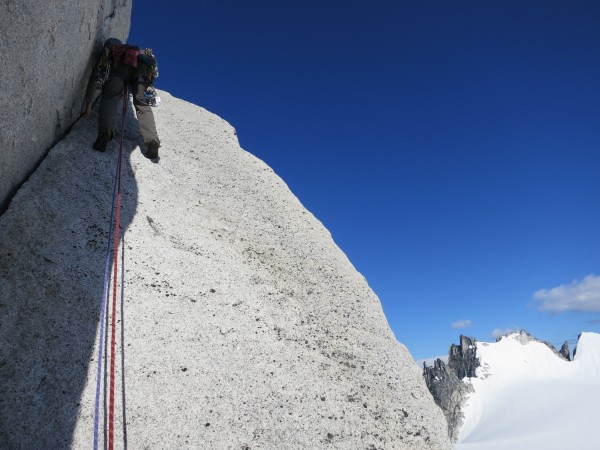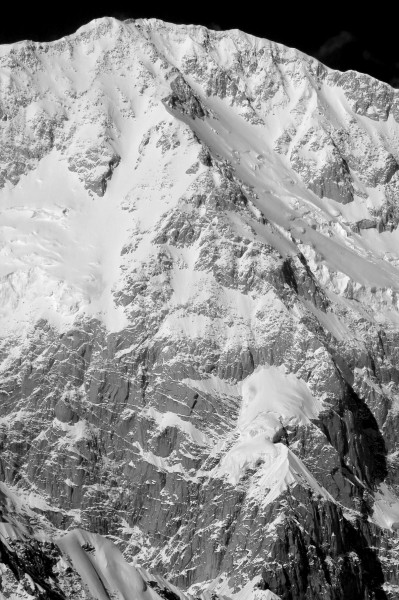tldr: We encountered lots of snow, great weather, and good times. We climbed routes on the Troll, the Muchkin, the Throne, and the Hobbit’s Footstool. This trip was supported by an awesome American Alpine Club Live Your Dream Grant.
The purpose of this trip, for me, was to break into technical climbing in the Alaska Range. The Pika Glacier seemed like the perfect place to do this. I could use this trip to learn about the weather patterns in the Range, figure out trip logistics, and grow my geographical knowledge. My thinking was: "With moderate routes and simple logistics, this should be easy, right?"
There were some complications. Unseasonable snowfall had just dropped 36” of new snow as we flew into the Pika glacier on June 28, 2014. On board was Chris from K2 Aviation, myself (Brad), Hari, and our stuffed Pika mascot named Jackson. As we flew in we saw avalanches everywhere. Warm temperatures after the storms cleared had resulted in alarming avy conditions. We would later watch as an entire snow field slid, at once, over an established route on the East Face of the Throne. “What are we doing out here?” I asked myself.
As our plane flew overhead, we felt the “Alaska Factor.” “What is our safety net out here?” I wondered. We had a satellite phone for emergencies, but evacuations are only possible in good weather. To thrive in this setting requires competence, self reliance, and hard work. Although I’ve visited the Alaska Range several times, I still feel drawn to the wildness of the place, and everything it entails.
We made camp and discussed our options.
We decided to proceed with caution up the South Face of Middle Troll. We climbed a variation to the standard route with two deviations: a fun 5.9 dihedral above the bergschrund and a great 5.7 chimney below the summit block. Getting over the bergschrund consisted of an 1m wide crevasse on a ~60 degree slope of mushy snow. When prodded, the slope would set loose an avalanche that would tumble into the pit, taking any foolish climbers along with it. We finally made it over using a technique that felt like swimming but looked much goofier.
On the summit, we sat back and enjoyed the views of the big mountains. With 24 hours of sunlight, we were in no hurry to start our descent.
On the Troll we noticed a troubling pattern: TONS unnecessary amount of rappel stations. Although the Troll could be rappelled using only four stations with two 60m ropes, we found dozens of rappel stations. Some of the stations were even located horizontally next to each other. On this trip we removed over 50m of old rappel station garbage.
What's going on with all the trash rap stations? Is it because an ethic of under-reporting means that people don't know about the presence of good stations? Or maybe it's just because lots of noobs (like me) go to Little Switzerland? Would it help if the Park allowed hand drilled bolts? I'm not sure what the solution is.
Anyways, on Sunday we were tent-bound in a rain storm. This was the low point of the trip, but fortunately it would turn out to be our only bad-weather day of the entire expedition. One of our single-walled tent flooded. During breaks in the storm we would get out and fortify our camp.
On Monday the weather cleared as a beautiful weather system moved in. We climbed the Munchkin. This was a nice, short, and easy climb with an incredible topout. We didn’t get the summit because we were lazy and didn’t want to traverse a sketchy looking snow field.
There was also a fun knife-edge ridge.
[
Click to View YouTube Video]
Starting on this day of good weather, we also realized how busy our airstrip would be. The Pika Glacier is a preferred spot for pilots to take tourists. They generally land, walk around for 10-20 minutes, and then fly away.
The de Havilland Beaver is the iconic Alaska bush plane. You can put floats on it to land on water or skis to land on snow. It’s the little brother of the de Havilland Otter but larger than the Cessna 185. It’s also incredibly loud. Loud like when you cover your ears you can feel your chest vibrate. I’m surprised that they allow these things in the Park. Doesn't this noise bother wildlife?
I'll focus on the climbing now and stop complaining...
On Tuesday we hiked over to the base of the Gargoyle Buttress but decided not to climb it because of the snow conditions. Not only was the base of this route being showered by avalanches almost constantly, but most of the low fifth class (easy) pitches were covered in loose, unconsolidated snow.
On Wednesday we climbed the Hobbit’s Footstool by a nice, clean rock route up the South (climbers’ right) ridge.
We took full advantage of the 24 hours of Alaskan sunlight and gradually became nocturnal over the trip. The main reason for this was to avoid the sweltering temperatures on the glacier during the day. There were also fewer avalanches and tourist planes at night. By our last climbs, we were returning to camp at 2am. This also had the nice benefit of warm temperatures while sleeping and the ability to dry our boots over breakfast (at 2 pm).
On Thursday we climbed the Lost Marsupial route on the Throne. This route involved high quality granite crack systems with some wandering third class terrain. Some lower angle terrain was snowy. Our upward progress was halted at the summit ridge by enormous cornices.
On Friday we packed up camp and flew back to Talkeetna. We took extra flight time to look at the classics of the Range: the Cassin Ridge, the Infinite Spur, the Moonflower Buttress, and Ham and Eggs.
Our original flight out was scheduled for Sunday but we decided to head back early for a variety of reasons. It turns out that a weather system moved into the region on Sunday, so it was good luck that we decided to head out when we did.
Trip Cost
This trip was partially supported by the American Alpine Club and the North Face through their Western Region Live Your Dreams Grant.
The expenses, per person, were:
Shuttle to Talkeetna 180
Bush Plane * 770
Food 225
Flight to Anchorage 520
Checked Bags 120
Total 1815
* This cost includes buying cooking fuel from K2 Aviation, snowshoe rental, and extra flight time to scope out certain objectives.
